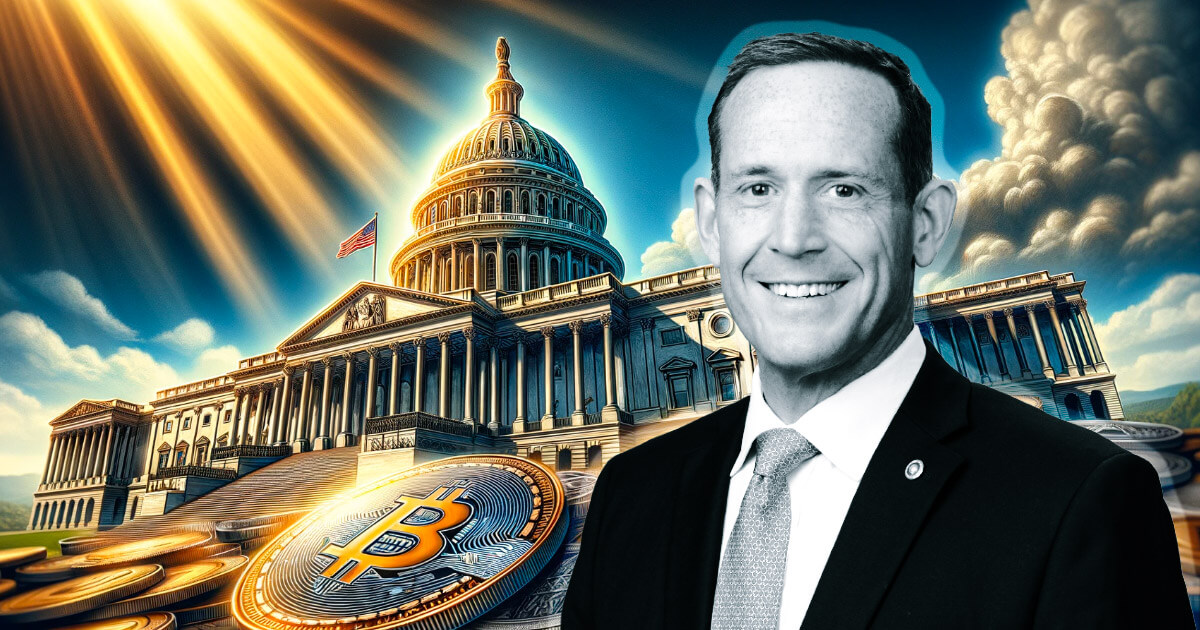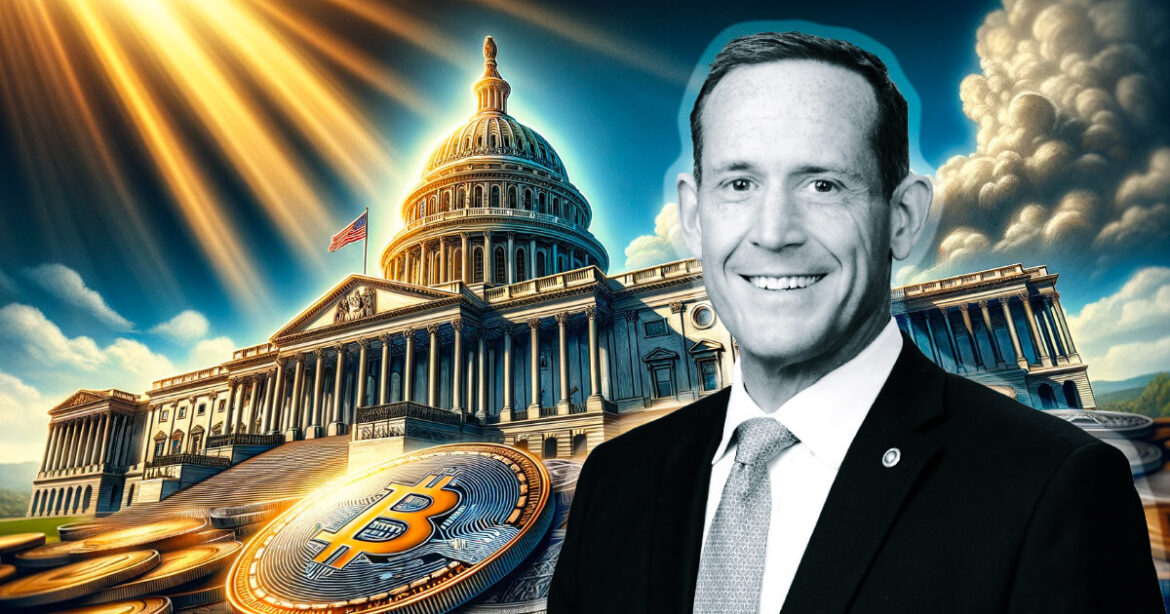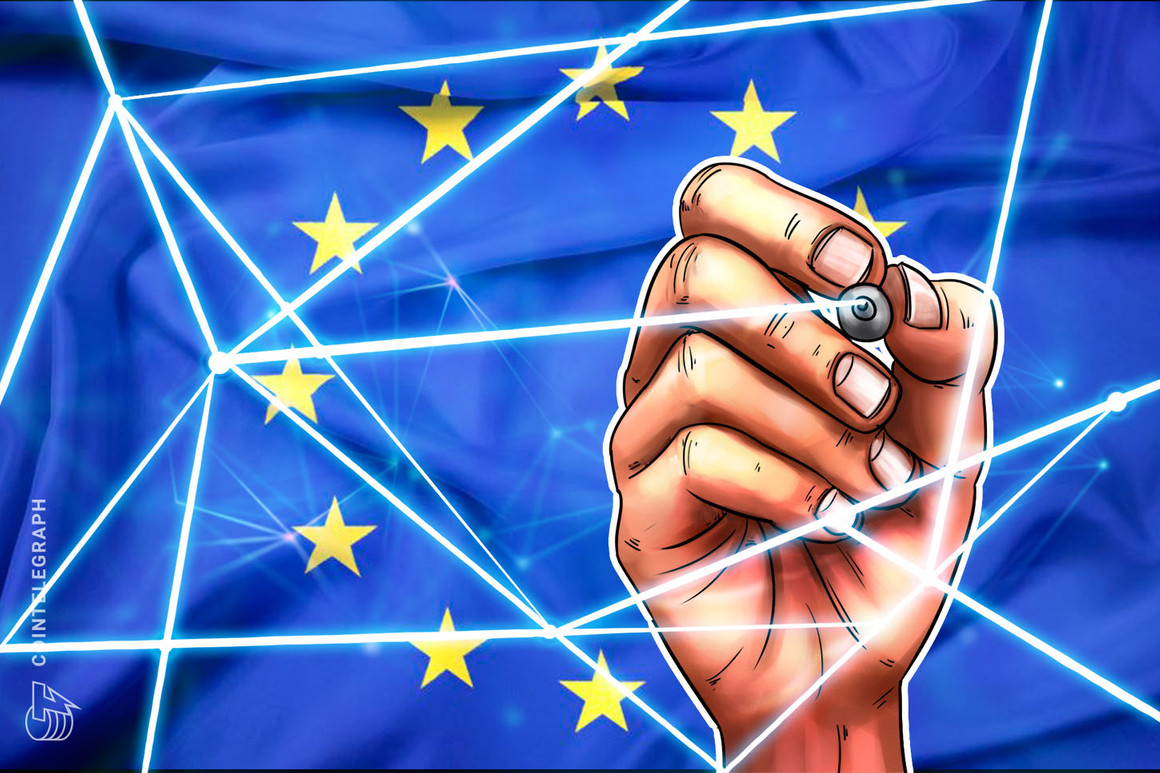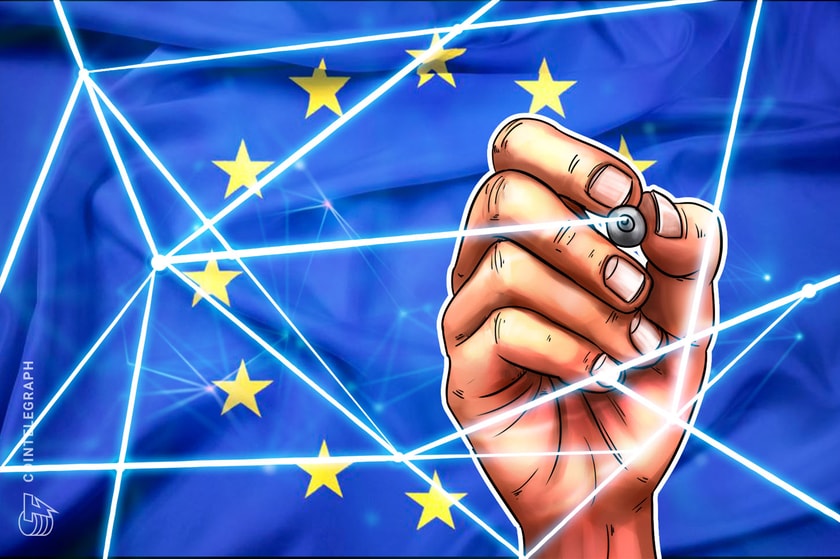 Skybridge Capital founder Anthony Scaramucci has advised bitcoin investors to act like they are dead with their coins and not sell them. “Don’t do anything with it,” he recommended, emphasizing: “The dead people at Charles Schwab do far better than the living people.” Anthony Scaramucci’s Bitcoin Investing Advice Skybridge Capital founder Anthony Scaramucci offered some […]
Skybridge Capital founder Anthony Scaramucci has advised bitcoin investors to act like they are dead with their coins and not sell them. “Don’t do anything with it,” he recommended, emphasizing: “The dead people at Charles Schwab do far better than the living people.” Anthony Scaramucci’s Bitcoin Investing Advice Skybridge Capital founder Anthony Scaramucci offered some […]
Source link
Act
‘Keep Your Coins Act’ comes to US Senate amid push for crypto self-custody

The push for greater financial freedom and decentralization in the crypto ecosystem continues with the introduction of the “Keep Your Coins Act” to the U.S. 118 Congress by Senator Ted Budd (R-NC) on Nov. 7.
The new bill aims to empower individuals to maintain full custody of their digital assets like Bitcoin (BTC) without reliance on third-party intermediaries like exchanges.
This self-custody legislation comes from the disastrous FTX collapse, highlighting the risks of leaving funds on centralized platforms.
Part of the bill reads:
“To prohibit Federal agencies from restricting the use of convertible virtual currency by a person to purchase goods or services for the person’s own use, and for other purposes.”
Senator Budd stressed the growing need for investors to control their digital assets amidst rampant industry turmoil.
“As consumers face new challenges and risks associated with the use of digital currencies, we should be empowering individuals to maintain control over their own digital assets,” Senator Budd said. “This approach will foster financial freedom and a more decentralized cryptocurrency ecosystem.”
If passed, the act would prohibit federal agencies from enacting rules against self-hosted wallets.
Meanwhile, the Senate bill mirrors previous efforts in the House, where Rep. Warren Davidson introduced similar legislation in 2022.
Davidson’s “Keep Your Coins Act” passed the House committee last July, though it has yet to see a full floor vote. The congressman has been a vocal advocate for protecting self-custody wallets from government overreach and has also been a prominent supporter of the emerging industry against regulators like the U.S. Securities and Exchange Commission (SEC).
The House and Senate bills underscore a broader push towards a more decentralized crypto ecosystem, where users retain personal control over assets. This aims to mitigate third-party risks while preserving financial freedoms.
While the fate of self-custody legislation remains uncertain, the latest Senate introduction keeps the conversation alive as lawmakers grapple with crypto oversight approaches.

On June 20, a bipartisan group of United States lawmakers introduced a bill to establish a commission to study the country’s approach toward artificial intelligence (AI).
The bill’s primary objective revolves around establishing regulations in the AI industry. The act comes hot on the heels of consumer protection groups in the European Union (EU) urging regulators to conduct investigations on AI models behind popular chatbots.
The bipartisan National AI Commission Act was introduced by Representatives Ted Lieu, Ken Buck and Anna Eshoo. The bill proposes the creation of a national body to formulate a comprehensive framework for regulating AI.
The act aims to address the potential risks associated with AI technology, with Lieu emphasizing the importance of preventing harm that can arise from unregulated AI. The commission will bring together experts, government officials, industry representatives and labor stakeholders to achieve this. Their collective efforts will focus on providing recommendations for effective AI regulation, according to the lawmakers.
Merve Hickok, president of the Center for AI and Digital Policy, voiced support for the National AI Commission. She said the proposal is timely and crucial, as it would establish essential regulations for AI and facilitate public involvement in shaping the nation’s AI strategy. The center has previously cautioned about the U.S.’s unpreparedness to address future AI challenges.
Hickok considers the proposal to form a commission a positive move forward and commended the lawmakers on the initiative.
Related: Biden to discuss dangers of AI in San Francisco meeting with experts
This development comes after persistent calls from numerous influential figures in the tech industry, such as billionaire Elon Musk and others, who have emphasized the necessity of implementing measures to moderate the pace of AI advancement. Notably, Sam Altman, CEO of OpenAI creator ChatGPT, has recently expressed his concerns regarding the urgent need to regulate the AI industry effectively.
Magazine: Is AI a nuke-level threat? Why AI fields all advance at once, dumb pic puns
EU Parliament Passes AI Draft Act to Regulate Growth and Use of Artificial Intelligence Technology
The EU is taking the lead with legislation for artificial intelligence as it passes its AI Act to minimize risks posed by the technology.
The European Union (EU) Parliament has passed the EU AI Act to oversee the development and application of artificial intelligence in the region. On Wednesday, Parliament passed the law with 499 votes in favor, 93 abstaining, and 28 votes against.
The EU AI Act became necessary as government officials worried that the ongoing explosion of AI development and use could be dangerous. Officials are concerned that artificial intelligence could be applied to illegal or criminal use if not properly regulated, as with many other types of tech.
The new act puts the EU ahead of the US regarding the control and adoption of artificial intelligence.
Specifics of the EU’s AI Act
The act requires companies that use AI for content to properly label all content generated by artificial intelligence. Officials expect this would help to quickly identify non-human content and stem the spread of false information. In addition to this, companies must also publish summaries of all data used to train AI. Publishing copyrighted data takes publishers into account and protects them from giant companies that may unduly benefit from their hard work.
The legislation also protects the general public from undue targeting by government bodies, such as law enforcement agencies. The EU AI Act bans any tools that can analyze information usable to predict criminal tendencies. In addition, the law would ban tools capable of influencing voter behavior for elections.
Furthermore, the EU AI Act would ensure restrictions on untargeted facial recognition and biometric surveillance services. These restrictions would also cover the use of artificial intelligence that could potentially harm people or the environment. Also, any AI applications considerably regarded as “high risk” would receive further scrutiny.
Reactions to the Act
A major talking point on regulating AI is the potential difficulty with controlling technology so generative. Regardless, many countries believe that artificial intelligence technologies should not be left to their own devices.
Speaking to NY Times, Ada Lovelace Institute acting director Francine Bennet said regulating AI is important. According to the exec:
“Fast-moving and rapidly repurposable technology is of course hard to regulate, when not even the companies building the technology are completely clear on how things will play out. But it would definitely be worse for us all to continue operating with no adequate regulation at all.”
On the other hand, ChatGPT maker OpenAI might feel differently about the new law. While the current act is still a draft law, OpenAI has said it could leave Europe if the final text contains requirements it cannot meet. Interestingly, OpenAI CEO Sam Altman supported AI regulation in his testimony before the US Congress. Altman said regulation is necessary to maximize proper AI use and minimize potential risks.
The bill will pass through further negotiations between members of the European Union. The final EU AI Act may not be concluded until later in the year.
next
Artificial Intelligence, News, Technology News

Tolu is a cryptocurrency and blockchain enthusiast based in Lagos. He likes to demystify crypto stories to the bare basics so that anyone anywhere can understand without too much background knowledge.
When he’s not neck-deep in crypto stories, Tolu enjoys music, loves to sing and is an avid movie lover.
You have successfully joined our subscriber list.






